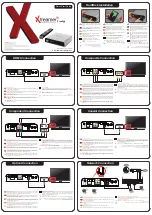
PROTOCOL CONVERTER A/S-2G
6
2.0 Introduction
The Model A/S-2G provides compatibility between an asynchronous, ASCII coded device and a
synchronous, EBCDIC coded device. It is desirable, prior to installation, to review the following
checklist to ensure the appropriateness of all the devices in the system for the planned application.
Synchronous (Bisynchronous) Side -
Which Protocol is being used? (2770, 2780, 3741, or 3780)
If IBM
®
-- is the line to be used a Bisynchronous line? Do you have the BSC Communications package?
Is machine code EBCDIC?
Asynchronous Side -
Is transmission code ASCII?
Will it operate in TTY format (start/stop, RS-232, 7 bit, and even-odd mark or space parity)?
The A/S-2G is equipped with two bidirectional RS-232C ports. These ports, labeled Port A and Port B,
transfer data at up to 19.2 Kbps. Either or both ports may be connected directly to a terminal, CPU,
or an appropriate modem. You configure each port’s operational parameters independently by setting
DIP shunts, DIP switches, and jumpers (explained in
Chapter 3.0
).
Diagnostic LEDs are mounted on the front of the unit. These LEDs are labeled Port A and Port B.
They are directly associated with the two ports and indicate the status of the A/S-2G at the port
indicated.
The reset button on the back panel will cause the A/S-2G’s Z80A microprocessor to reinitialize (reset).








































